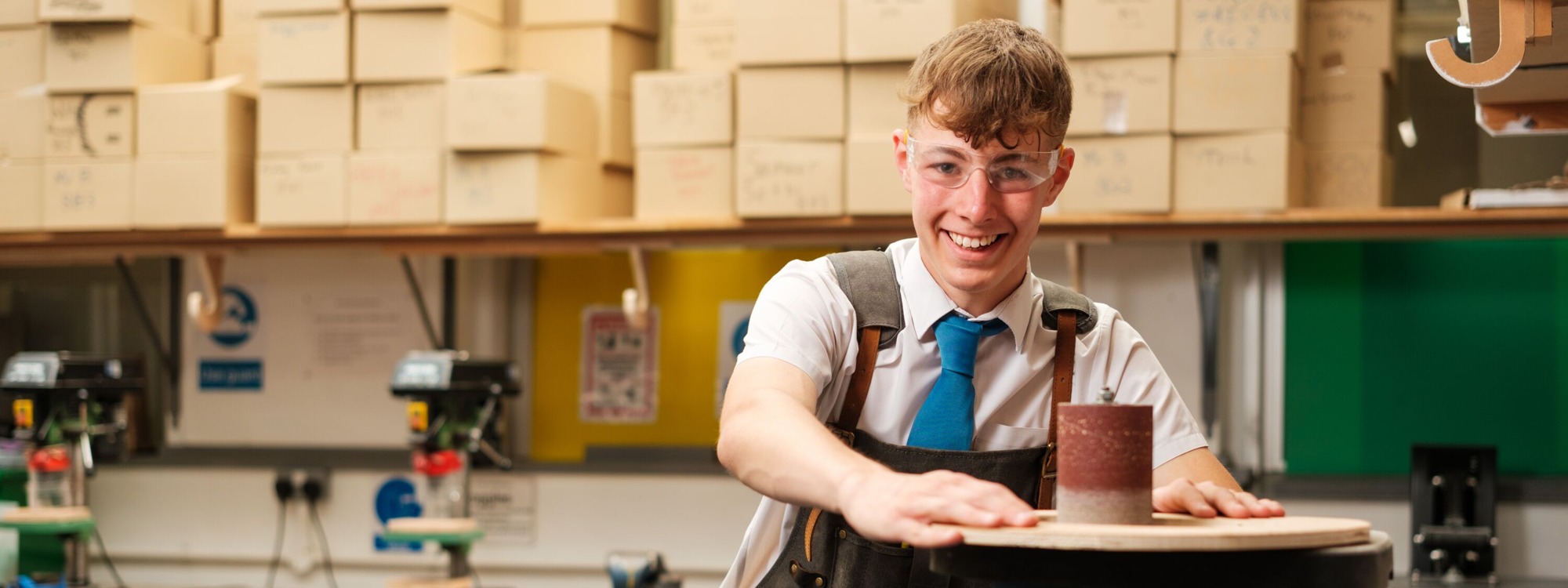- Home
- Curriculum
- Subject Information
- Design & Technology
Design & Technology
| Name | Role | |
|---|---|---|
| Mr D Bibbington | Subject Leader | D.Bibbington@beverleygrammar.co.uk |
| Miss S Carress | Teacher | S.Carress@beverleygrammar.co.uk |
| Mrs L Mulligan | Teacher | L.Mulligan@beverleygrammar.co.uk |
Curriculum Content
| Year 7 | Year 8 | Year 9 | |
|---|---|---|---|
| Design |
Design Skills and upcycling; Hone the skills required to be a good designer including sketching and generating ideas, analysing existing products and evaluating your own work. Use these skills to design and make an upcycled product. |
Sustainable design and scale models;
Understand the ecological impacts of design and ways to offset these consequences. Follow a structured design approach to design and build a scale model eco house. Use computer-aided design (CAD) packages to render final presentation designs. Understand sustainable building methods and power generation, model-making techniques and working to scales. |
Inclusive Design;
Employing user-centred design principles design and make a prototype assistive device for the disabled. Hone CAD modelling and 3D printing techniques to iteratively improve design ideas over time. |
| Engineering | Introduction to the workshop environment;
Health and safety, sketching skills, technical drawings, correct use of tools, accurate measuring and marking, basic woodworking joints. |
Roller-coaster;
Design and manufacture a working model roller-coaster. Understand the principles of motion and mechanisms, structural elements, costings and working to a budget. |
Cable Stay Bridge;
Using industry-standard parametric CAD modelling software packages, design and create a model suspension bridge. Understand the principles of forces and structures, reading and producing engineering drawings, working to tolerances and the use of CAM (Computer-aided manufacturing) machinery. |
| Food | Food safety, nutrition and healthy eating;
Practical skills covered include; basic knife skills, the rubbing in method, boiling and simmering, shallow frying, stewing fruit, creaming method, basic sauce making, food hygiene and preventing cross-contamination. |
Food science and provenance of ingredients;
Practical skills covered include; roux sauce, dough making and kneading, creaming method, thickening sauces, whisking and pastry making and shaping. |
Food choice and special diets;
Religious diets, ethical choices, legislation, labelling and food intolerances Practical skills covered include; laminating dough, using a bain-marie, seasoning, shaping pastry, filo folding and sealing, rolling and preparing enriched doughs |
| Key Stage 4 | |
|---|---|
| GCSE Design |
Students will spend most of their time in Year 10 working on design projects and focussed practical tasks to give them the skills they need to undertake a major design project in Year 11, which contributes towards their final grade. Students will also cover a wide range of topics around wider design theory, including; the impact of new and emerging technologies, the functions of mechanical devices, developments in modern materials, how electronics are used to enhance the functions of products, how to produce prototype designs to a professional standard, an understanding of iconic designs from the past and an ability to analyse existing designs, both classic and contemporary. Students investigate many of these topics through a mixture of written and practical tasks. |
| GCSE Engineering |
This qualification is designed for pupils with an interest in engineering. It will provide pupils with experience of using different tools and materials. This qualification is appropriate for pupils looking to develop their knowledge and understanding of engineering and apply that knowledge to practical projects. Pupils will work on several projects throughout the course and learn skills through hands-on experience. Through taking this course, pupils will develop; a broad understanding of the engineering sector, an ability to use various tools and equipment and an ability to draw, develop and understand engineering drawings. Several units make up this qualification including;
|
| GCSE Food | The course is split into two halves. 50% of the course is food theory based which is examined in one exam at the end of Year 11. The other 50% is made up of two pieces of coursework; a food science investigation (worth 15%) and a themed food challenge during which students cook three dishes over three hrs (worth 35%). |
